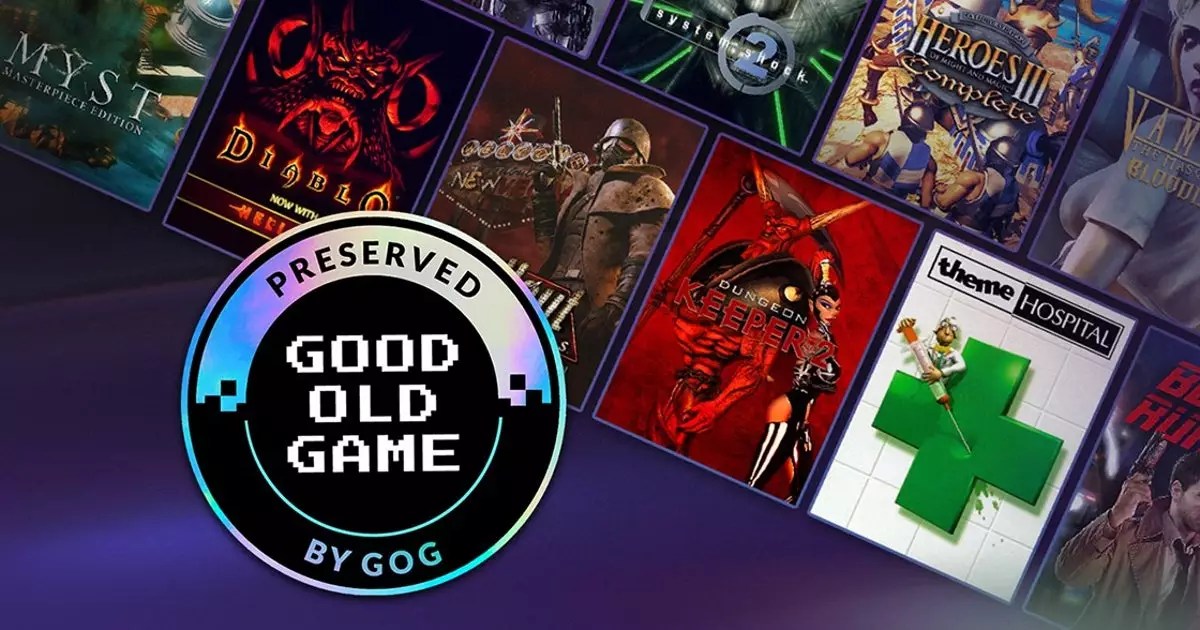In the dynamic landscape of digital gaming, GOG has historically carved a niche by offering a vast library of classic titles, inviting players to revisit nostalgic adventures free from digital rights management (DRM). However, in recent years, they have gradually expanded their catalog to include modern blockbusters, leading to a shift in their identity. This evolution has sparked discussions among players about the brand’s commitment to game preservation. Nevertheless, GOG has now embarked on an ambitious initiative known as the GOG Preservation Program, aimed at marrying the past with the present and ensuring that classic games remain accessible and functional for current-generation hardware.
The GOG Preservation Program signifies a reinvigoration of the company’s foundational principles, addressing the compatibility issues that often plague older games when played on contemporary systems. The initiative seeks not only to sell retro titles but to enhance them, refining their performance and fixing technical problems that might otherwise hinder the gaming experience. Each title that undergoes this meticulous restoration process will bear the “Good Old Game” badge, serving as an indicator that it has been lovingly tweaked to perform well on modern PC setups.
This program is reminiscent of initiatives taken by other platforms, such as Valve’s Steam Deck Verified system, which guides players in selecting games that are optimized for the device. GOG’s approach is to enlist its in-house developers to address issues like bugs, outdated graphics, and incompatible formats that could detract from gameplay. By modernizing these classic games—such as updates to popular franchises like Resident Evil and Diablo—GOG is reaffirming its commitment to preserving gaming history while simultaneously making these experiences relevant for a new generation of players.
To kick off this initiative, GOG is relaunching a stellar selection of over 100 games that now qualify for the Good Old Game status. This includes iconic titles such as the original Diablo—complete with its Hellfire expansion—System Shock 2, and the cult favorite Vampire: The Masquerade – Bloodlines. Additionally, classic RPGs like Fallout and Fallout: New Vegas are part of this release, as well as adventure titles like The Curse of Monkey Island and the X-COM series. This diverse selection caters to a range of gaming preferences, appealing to long-time fans while potentially attracting new players curious about the roots of gaming culture.
While the anticipation around playing updated versions of these classics is undeniable, it also highlights a broader sentiment. Players often express a desire for modern tweaks to games that may not be critically old yet still suffer from hardware compatibility issues. As a case in point, New Vegas stands out as a title many gamers wish could be streamlined for modern play, allowing them to experience the game without the cumbersome need for extensive modifications.
Despite the positive reception of the GOG Preservation Program, GOG faces inherent challenges in their mission to revive and optimize classic games. A significant obstacle includes the need for cooperation from original developers and publishers, who may have little incentive to invest resources in revamping older titles. As a business model, it’s essential for GOG to balance their preservation efforts with the need to generate revenue, as they are not a museum and must maintain sustainability.
Interestingly, the timing of this initiative aligns with growing frustrations among players regarding the digital preserver’s role in gaming. Legal disputes have emerged recently, with disgruntled customers suing publishers over the unavailability of games post-server shutdowns. This underscores the urgency with which GOG is addressing the need for accessible, offline gaming experiences in an era marked by abrupt service discontinuations.
Ultimately, GOG’s renewed focus on game preservation might signal a turning point in how we perceive classic gaming titles. By leveraging marketability alongside nostalgia, they serve a dual purpose: both preserving cherished games and catering to a contemporary audience. Players can only hope that the GOG Preservation Program becomes a sustainable and expansive venture, allowing even more titles to be preserved in a format conducive to modern gaming.
As we continue to navigate an ever-evolving gaming landscape, the efforts of GOG highlight the importance of balancing innovation with a respect for gaming history. This initiative not only fosters a new era of game restoration but encourages a dialogue about the future of digital preservation in the gaming industry.


Leave a Reply